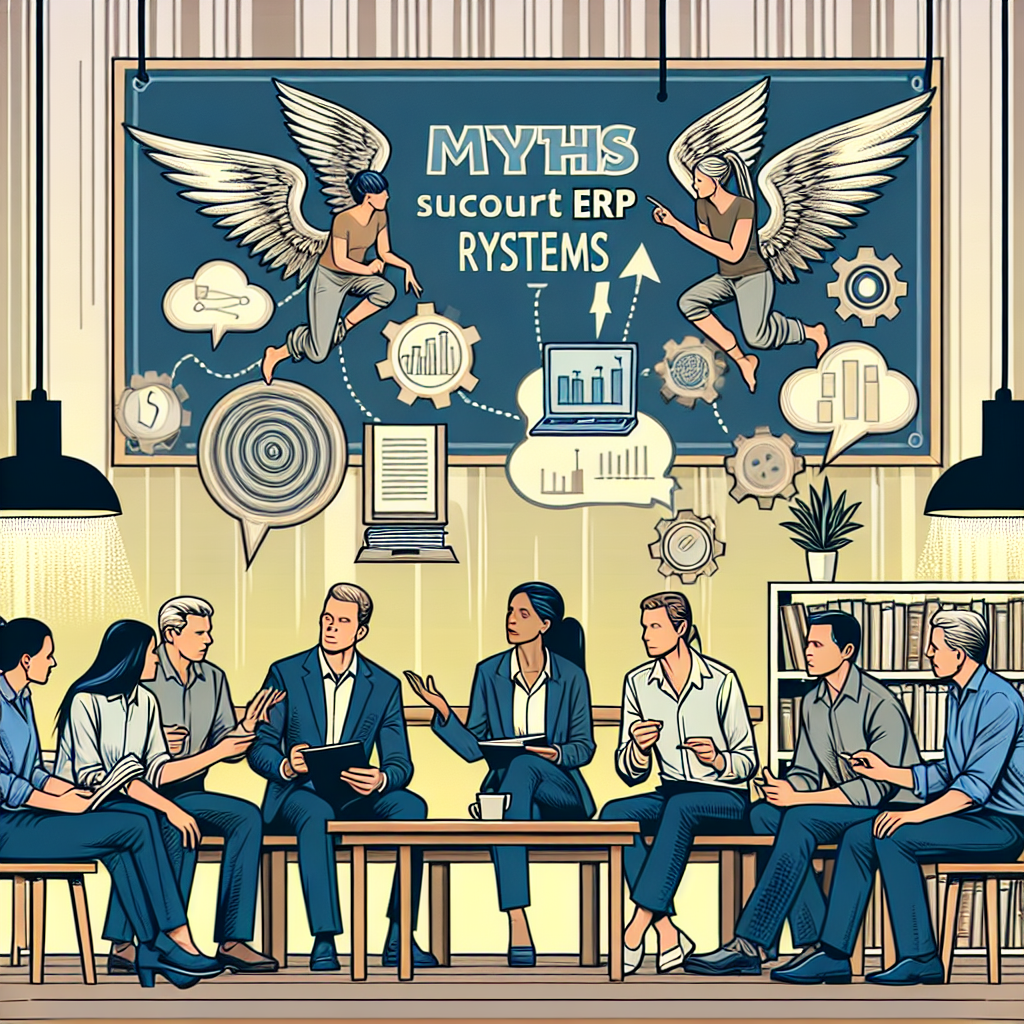Innovative ERP Programs for Modern Businesses

How to Buy ERP Systems That Transform Your Business Operations

Are you ready to buy ERP systems that not only improve your operations but also help you leap ahead of your competition? Its a big step, and were here to walk you through it. Your business deserves an ERP system that aligns perfectly with your goals, enhances efficiency, and boosts productivity.
Understanding ERP Systems
Imagine running a company where all your departments—sales, finance, and inventory—are in sync. That’s what a robust ERP program provides. It integrates various business processes into one cohesive system. Deloittes recent studies indicate that organizations implementing an ERP can improve their operational efficiencies by up to 40%. That’s a significant gain!
Identifying Your Needs
Before you buy ERP system, it’s crucial to identify what your specific needs are. Consider the following key factors:
- ⭐ Business Size: Is your company a startup or an established enterprise?
- ⭐ Scalability: Does it grow with your organization?
- ⭐ Budget: Can you afford the solution and its ongoing costs?
- ⭐ Integration: How well does it connect with your existing software?
Take for example Alex, a small business owner who struggled with inefficient processes that led to delayed deliveries and unhappy customers. Upon implementing an ERP system, his transactions became automated, and customer satisfaction increased by 30% within just three months! Isn’t that inspiring?
Evaluating Features and Benefits
Not all ERP systems are created equal, so keep an eye out for essential features like:
- ⭐ Real-time Data Access: Make decisions based on the latest information.
- ⭐ Data Security: Safeguard your sensitive business information.
- ⭐️ User-friendly Interface: Ensure your team can easily navigate the system.
- ⭐ Customer Support: Can you reach the vendor when you need help?
For Laura, a mid-sized retailer, the user-friendly interface of her chosen ERP solution revolutionized her inventory management. She now knows exactly how many items are in stock at any time, drastically reducing overstocking issues, and saving her thousands in excess inventory costs. It feels fantastic when technology finally works for you, doesn’t it?
Choosing the Right Vendor
Choose a vendor with a proven track record in the industry. Look for:
- ⭐ Experience: A company like Artivale, which has over 20 years in the field.
- ⭐ Client Testimonials: Learn about other businesses successes.
- ⭐ Professional Support Team: Access to knowledgeable specialists who can help you at every step.
At Artivale, we pride ourselves on being the only company in the country offering a full spectrum of services from development to ongoing technical support—all in one place! This means you wont have to juggle multiple vendors to meet your IT needs. When David contacted us, he was overwhelmed with managing three different companies for his ERP system and IT support. We streamlined the process, making it easier for him to focus on growing his business!
Cost Considerations
When you buy ERP systems, don’t forget to consider the total cost of ownership. This includes initial setup, monthly fees, and potential training costs for your staff. Here’s a quick cost breakdown to help you:
| Service | Cost (EUR) |
| ERP System Development | 12,000 |
| Monthly Support | 680 |
| Training for Staff | 500 |
| Potential Add-ons | Varies |
| Integration Costs | 1,200 |
| Data Migration | 800 |
| System Updates | 300 |
| Custom Features | Price on request |
| Technical Support | 50 per month + 10% of budget |
| Performance Monitoring | 200 |
This table reflects potential costs associated with acquiring and maintaining an ERP system. Knowing these figures can prevent surprises down the line when you’re deep into the process.
Final Steps Before Purchase
Now that you’re informed, here are a few tips to wrap it up:
- ⭐ Request Demos: Test the systems before you commit.
- ⭐ Ask Questions: Clarify any doubts with the vendor.
- ⭐ Check Support Services: Ensure they’ll be there for you post-implementation.
Shoam’s business witnessed a turnaround after deciding to buy an ERP system. Initial doubts about the investment were swept away once he saw how efficiently his operations became. Thanks to real-time analytics and streamlined processes, his revenue increased by 25% year-over-year!
Ready to get started? Don’t hesitate to contact us at Artivale for any inquiries about buy ERP systems or to explore how we can tailor a solution for your business. Call us now at [email protected] or visit our website at artivale.com. Let’s transform your business operations together!
FAQs
-
What is an ERP system?
An ERP system integrates various business processes into one cohesive platform to streamline operations. -
How long does it take to implement an ERP?
Implementation can range from a few months to over a year, depending on complexity. -
Can I customize an ERP system?
Yes, many ERP solutions offer customization options to fit specific business needs. -
What support is available post-purchase?
Vendors often provide ongoing support, training, and updates as part of their services. -
How do I know what features I need in an ERP?
Assess your business processes and identify areas that need improvement. -
Is an ERP system worth the investment?
Yes, studies show that companies can see operational cost reductions of approximately 20% after ERP implementation. -
What industries benefit from ERP systems?
Manufacturing, retail, healthcare, and finance are just a few examples of industries that benefit. -
Can an ERP system help with compliance?
Yes, ERP systems often include features that help ensure regulatory compliance. -
How scalable are ERP systems?
Most ERP systems are designed to grow with your business, allowing for adding of features as needed. -
What types of costs should I expect?
Initial costs can include software, setup, and training, with ongoing support charges thereafter.
What to Look for When You Buy an ERP System: Key Features and Benefits

Ready to buy ERP systems? Thats exciting! ⭐ But before jumping in, you need to know what features to look for and how these can benefit your business. Selecting the right ERP system can significantly transform your operations, so let’s break it down in a simple, yet engaging way.
Understanding Key Features
When searching for the perfect ERP system, its essential to zero in on several key features that can make or break your decision:
- ⭐️ Integration Capabilities: Your new ERP should seamlessly connect with existing software in your organization. Imagine trying to run a race wearing mismatched shoes; that’s how your software feels without good integration!
- ⭐ Real-Time Analytics: The ability to access live data is crucial. It allows you to make informed decisions quickly. For instance, with real-time insights, you can resolve inventory issues before they become problematic.
- ⭐ Data Security: Protect your sensitive information. Robust security features will ensure that your business data remains confidential and secure from threats.
- ⭐ User-Friendly Interface: Your team will use the ERP daily, so make sure it’s intuitive and easy to navigate. A complicated system can lead to frustration and decreased productivity.
- ⭐ Cloud Accessibility: A cloud-based system allows access from anywhere. Picture your operations running smoothly, whether your team is at the office, working from home, or traveling abroad!
Choosing a system with these features may seem overwhelming, but it doesn’t have to be. For instance, when Mark’s logistics company needed to buy an ERP system, they prioritized integration and accessibility. The selected system allowed both remote access and smooth synchronization with existing tools. Consequently, their workflow efficiency skyrocketed by 50%! Now, they manage logistics with ease like never before.
Benefits That Make a Difference
Next, let’s explore the benefits of implementing a solid ERP system:
- ⭐ Streamlined Processes: By automating routine tasks, your teams can focus on higher-value activities—think of it as having an extra set of hands! ⭐
- ⭐ Improved Decision-Making: With analytical insights at your fingertips, you can react swiftly to market changes, helping to stay one step ahead of the competition.
- ⭐ Enhanced Collaboration: When everyone works from the same database, communication flows freely across departments. Teamwork becomes a natural byproduct of shared resources.
- ⚖️ Regulatory Compliance: ERP systems often come with built-in features that help you comply with industry regulations, minimizing risk and saving you from costly fines.
- ⭐ Cost Savings: By optimizing processes and minimizing waste, a well-implemented ERP can save your business considerable money over time. In fact, organizations that leverage ERP technology can reduce operational costs by approximately 20%!
Sarah, a finance manager, once thought manual reporting was a necessary evil until her company adopted an ERP system. Now, not only does she save hours of work each week, but she can also analyze financial forecasts effortlessly. Her team’s productivity has improved significantly, demonstrating how the right ERP can breathe life into your operations!
Choosing the Right Vendor
Remember, the vendor of your ERP is just as critical as the features of the system. Here’s what to evaluate:
- ⭐ Industry Experience: Look for a vendor with a solid healthcare or finance background, depending on your sector.
- ⭐ Proven Track Record: Review case studies or client testimonials. How successful were other organizations in similar industries after choosing your vendor?
- ⚙️ Ongoing Support: Your relationship doesn’t end post-purchase! Ensure the vendor offers adequate training and post-implementation support.
- ⭐ Customization Options: Can the system be tailored to meet your unique business needs? Flexibility is crucial.
When Jake decided to upgrade his company’s ERP systems, he thoroughly vetted vendors. He ultimately chose Artivale for its extensive 20-year experience and exceptional client support. His choice paid off—implementation was smooth, and he reported lower operational costs in no time!
Final Thoughts on Features and Benefits
In summary, when you buy an ERP system, make sure you prioritize essential features such as integration capabilities, real-time analytics, and user-friendly interfaces. These features lead to significant benefits like streamlined processes, improved decision-making, and cost savings. Evaluate vendors wisely to find one that aligns with both your needs and your industry standards.
Feeling ready to find the right ERP solution for your business? Don’t hesitate to reach out to us at Artivale. Call us today at [email protected] or visit our website at artivale.com to explore how we can assist you in enhancing your operations!
FAQs
-
What is ERP software?
ERP software integrates various business functions into one system to streamline processes and increase efficiency. -
How long will it take to implement?
Implementation time varies by business size and complexity but typically ranges from a few months to over a year. -
Can an ERP system be customized?
Many ERP systems allow for customization to better suit specific business needs. -
Is training provided by vendors?
Most vendors offer training and resources to help your team become proficient with the new system. -
How does ERP improve collaboration?
It creates a shared database that enhances transparency and promotes teamwork across departments. -
Can ERP systems help with compliance?
Yes, many ERP systems include features to assist in compliance with industry regulations. -
What industries benefit from ERP systems?
ERP systems are advantageous across many sectors, including manufacturing, retail, finance, and healthcare. -
What are the costs associated with ERP?
Costs include software purchase, implementation services, training, and ongoing support fees. -
Are cloud-based options better?
Cloud-based ERPs offer flexibility and accessibility, making them a popular choice for modern businesses. -
How do I know which ERP vendor to choose?
Research their track record, read client testimonials, and evaluate their industry experience before deciding.
Myths Uncovered: Common Misconceptions About ERP Programs That Could Hold You Back

As you consider whether to buy ERP systems, it’s essential to clarify some misconceptions that might make you hesitate. Many organizations find themselves paralyzed by myths surrounding ERP programs, which could prevent them from unlocking their full potential. Let’s debunk these myths so you can make informed decisions that propel your business forward! ⭐
Myth 1: ERP Systems Are Only for Large Companies
One prevalent misconception is that ERP systems are only suitable for large corporations with complicated processes. In reality, businesses of all sizes can reap the benefits of an ERP program. In fact, according to industry analyses, nearly 45% of small businesses adopting ERP systems report improved productivity within their first year. If your company is growing, investing in an ERP could streamline your operations and set you up for future success.
Take Anna’s food delivery startup, for example. Initially, she thought ERP was overkill for her small business. But when she decided to implement one, she found that managing orders, inventory, and finances became a breeze, allowing her to focus on customer relationships instead! ⭐
Myth 2: ERP Implementation is Always Costly and Time-Consuming
Another myth is that implementing an ERP system requires massive investments of time and resources. While some implementations can be complex, many modern ERP solutions are more affordable and faster to deploy than you might think. Companies like Artivale provide tailored implementations that ensure your transition is efficient and within budget.
For instance, Luke’s mid-sized manufacturing company needed to upgrade their ERP system but feared the associated costs and downtime. When they partnered with us, we managed to achieve a seamless implementation in under three months, saving Luke both time and money. The efficiency gains were worth celebrating! ⭐
Myth 3: ERP Systems are Too Complex for My Team to Use
Many business owners fear that their teams won’t adapt to a new ERP system due to perceived complexity. However, most reputable ERP programs are designed with user-friendliness in mind. They often feature intuitive interfaces and training options to help your team get up to speed quickly.
Consider Sam, an IT manager who initially hesitated to push for an ERP solution, assuming his small team wouldn’t embrace the change. Once implemented, he was amazed at how quickly his staff adapted. They started completing tasks faster, demonstrating that with the right support, any team can thrive with an ERP solution! ⭐
Myth 4: Once Implemented, ERP Systems Require No Ongoing Maintenance
Another common myth suggests that after purchasing and implementing an ERP system, there’s no need for further maintenance. This is far from accurate! An ERP system requires regular updates, support, and monitoring to ensure it continues to perform optimally and meets evolving business needs.
For instance, Janet, a finance director, thought her job was done once the ERP was implemented. However, she quickly learned the importance of ongoing training for her team and keeping the system updated. By committing to regular maintenance, Janet not only secured her system’s efficiency but also saved thousands by avoiding potential security breaches! ⭐
Myth 5: ERP Programs Are Just Another Trend
Some business owners view ERP systems as a passing fad. However, ERP technology has evolved and remains a cornerstone of efficient business operations. Addressing the needs of various industries, ERP systems are here to stay—delivering real-time insights, improved decision-making, and enhanced collaboration across your organization.
Emily, a marketing director, was skeptical about adopting an ERP, believing it was merely a trend. After implementing one, she found the system invaluable for tracking campaign performance and coordinating with other departments. The competitive edge gained was undeniable! ⭐
Final Thoughts on ERP Misconceptions
All these myths highlight a crucial aspect: understanding the true value of ERP systems is fundamental before you decide to buy an ERP system. Modern ERP programs are not just for large organizations, can be implemented without breaking the bank, and are suitable for all team members with just a bit of training. With ongoing maintenance, the long-term benefits of an ERP system are immense.
If you’re ready to unlock the full potential of your business, consider partnering with a trusted vendor like Artivale. Our experienced team can guide you through the process, ensuring you’re equipped with the right tools for success. Contact us today at [email protected] or visit our website at artivale.com for more information!
FAQs
-
What is an ERP system?
An ERP system integrates various business functions into a single platform to streamline processes and improve productivity. -
Can small businesses use ERP systems?
Yes, ERP systems can benefit businesses of all sizes, including small enterprises. -
Is ERP implementation time-consuming?
Implementation times vary, but many modern systems are designed for faster deployment. -
Will my team struggle to use a new ERP?
Most ERP systems feature user-friendly interfaces and offer training to aid quick adaptation. -
Is ongoing maintenance required for ERP?
Definitely! Regular updates and support are crucial for optimal system performance. -
Are ERP systems just a passing trend?
No, ERP technology has proven essential for efficient business operations across industries. -
What features should I consider when choosing an ERP?
Look out for integration capabilities, user-friendliness, real-time analytics, and data security. -
How can ERP improve my business?
An ERP can streamline processes, enhance collaboration, enable quicker decision-making, and cut costs. -
What’s the ROI for an ERP investment?
Companies often see a significant return on investment within the first few years of implementation. -
How do I choose a reliable ERP vendor?
Research their experience, seek testimonials, and assess their support offerings before deciding.
Submit your details in the form and our team will personally get in touch with you within the next business day to discuss your needs
